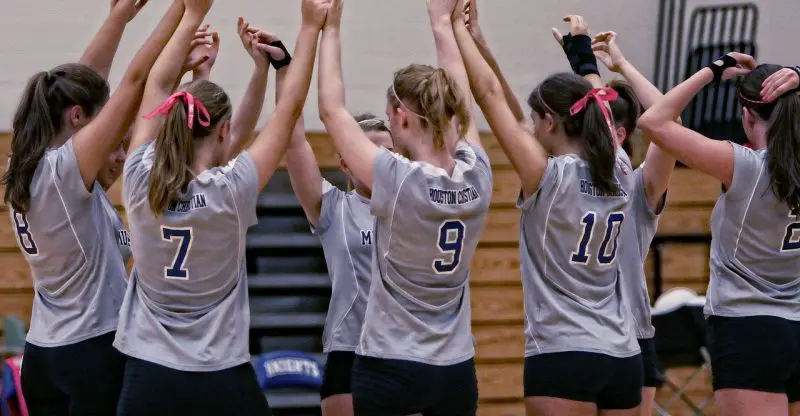Developing a Volleyball Coaching Philosophy By Age Group
As a volleyball coach, the best general philosophy to have is one of support and enthusiasm. However, depending on the age group you are coaching, there are a few things you should keep in mind to account for age-related differences whether that be in physicality, athletically, or emotionally.
Ages 9 and Younger
Kids who are aged 9 and younger probably won’t have played much volleyball at all, though you may come across a few who have played for a season or two.
Typically, when coaching this age group the emphasis should be on fun and developing the basic elements of the game. The goal is to make sure that the kids have a great experience and will come back to play volleyball next season. There shouldn’t be much emphasis on power or precision, as kids at this age lack both the coordination and strength required.
Additionally, you don’t want to solely focus on volleyball during practice and the conversations you have with them. Instead, ask about other areas of their lives so you can get to know them better and they become more comfortable around you.
Ages 10-12
In this age group, sports, whether that be volleyball or not, take more of a primary role in kids’ lives. It’s, therefore, a good idea to focus more on important aspects of the game like serving and digging.
As kids’ bodies develop at different rates, it’s common to see some players who can hit more powerfully or are better coordinated than others who might struggle with the most basic techniques. It can be a bit of a balancing act trying to develop kids who are at different skill levels, but you want to make sure that you dedicate a similar amount of time with all the kids regardless of how well they play the sport.
Unfortunately, this is also the age where parents can get a little too involved in a kid’s life when playing volleyball, as they think they may have a prodigy on their hands. You should therefore expect to spend more time dealing with parents and make sure that everyone is on the same page.
You also want to make sure that you get to know the kids on a more personal level to show that you care about them as individuals instead of just how good they are at volleyball. It can also be nice to buy a team volleyball gift to show everyone that they’re part of the team and to strengthen bonds.
Ages 13-14
This can be a bit of a challenging age group to coach, as the kids have now reached the awkward stage of being a teenager. Despite the challenges, coaching early teens can be very enjoyable and rewarding as you watch them grow both as volleyball players and people.
At this age, the kids usually have a good handle on the basics, so it’s your job to further improve their level of play. This usually involves the use of more advanced drills and generally challenging them every time they step onto the court.
You can probably remember at this age you started strongly identifying with something, anything, to try and find out who you were. Volleyball is often that something, so keep in mind the added passion that suddenly appears during practice and in matches.
Some parents can also become more involved at this stage, as they start to see how volleyball can be more than just a fun sport to play but also a competitive one that could even lead to college scholarships.
Ages 15 and Older
When players reach 15 years old and older they have usually been playing for a number of seasons and are really passionate about the sport. Some may have attended volleyball camps while many others start putting the time in away from the court to better develop their conditioning and other aspects of their game.
You might be challenged by both the players as well as their parents, as they start to question certain decisions you make, like how you are positioning the players, the tactics you use, and the amount of playing time you give certain players.
There’s no doubt that coaching players who are 15 and older can be challenging but it can also be rewarding and fun as you really start to see them develop and the joy and passion involved with every practice and match shines through.
When coaching this age group, make sure that you let the players know that you value their opinions, suggestions, and input because it can help form important coach-players bonds that will generally make your job as a coach easier.

